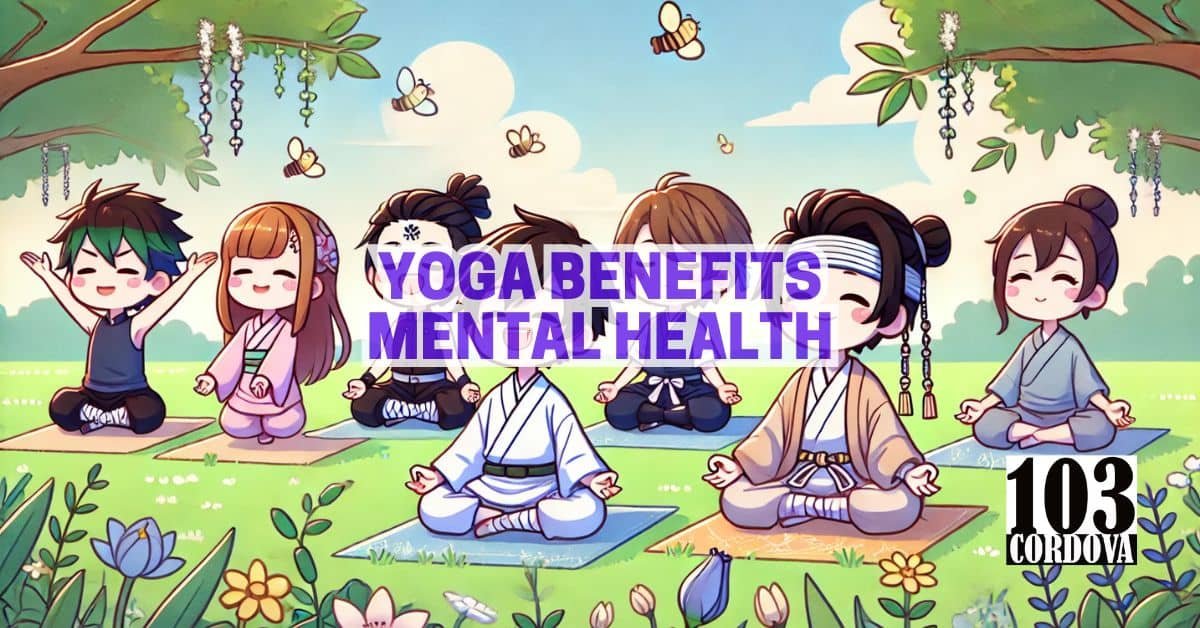Yoga provides numerous mental health benefits, especially for individuals dealing with anxiety and depression.
This practice, which combines physical poses, controlled breathing, and mental focus, offers tools for emotional stability and improved mood.
Many people turn to yoga as a way to reduce stress, increase self-awareness, and develop coping strategies.
By examining its impacts on mental health, we can understand why yoga is increasingly recognized as a supportive therapy for mental well-being.
The connection between yoga and mental health highlights its potential to positively shape emotional resilience and psychological health.
1. Understanding Anxiety and Depression: A Brief Overview
Anxiety and depression are two of the most widespread mental health issues that affect millions globally.
Anxiety often includes excessive worry, fear, and tension, which can make daily tasks feel overwhelming.
Depression involves persistent sadness, low motivation, and a lack of interest in activities that once brought joy.
Both conditions can interfere with sleep, appetite, and concentration, impacting every part of a person’s life.
Recognizing the effects of anxiety and depression is important to understanding how lifestyle choices, such as yoga, can play a role in their management.
🧘 How to Combine Meditation and Yoga to Chill Out: Effective Techniques
2. How Yoga Helps Reduce Stress and Its Impact on Mental Health
Yoga is known for its powerful stress-reducing effects, which can positively influence mental health.
By engaging in yoga, individuals often activate their parasympathetic nervous system, which helps the body relax and lowers stress hormones like cortisol.
Lowering stress levels is crucial for those with anxiety and depression, as chronic stress can worsen their symptoms.
Yoga also encourages a mental break from daily pressures, providing a space to focus inward rather than on external worries.
Through this, yoga becomes a valuable practice for maintaining a calmer, more balanced mental state.
🧘 Getting the Hang of the Yoga Upside Down Pose: Tips for Newbies
3. The Power of Mindfulness in Yoga for Mental Clarity
Mindfulness is a core element of yoga, inviting practitioners to focus fully on the present moment.
By concentrating on each movement and breath, yoga encourages mental clarity and prevents the mind from wandering into negative or anxious thoughts.
Practicing mindfulness in yoga teaches individuals to observe their thoughts without reacting, creating a sense of emotional stability.
This focus on the present can reduce the impact of past regrets or future worries, which are common in anxiety and depression.
Yoga’s emphasis on mindfulness thus offers a valuable approach to maintaining mental clarity and emotional balance.
🧘 Why Seniors Should Try Laughter Yoga: Boosting Health and Happiness
4. Breath Control in Yoga: A Tool for Calming Anxiety
Breath control, known as pranayama in yoga, plays a vital role in calming the mind and body.
Slow, deep breathing signals the body to relax, reducing heart rate and lowering blood pressure, which can ease anxiety.
Practicing controlled breathing helps individuals gain control over their reactions to stressful situations.
This technique not only provides immediate relief but also builds resilience over time, making it easier to manage future anxiety.
Breath control in yoga offers a simple, accessible tool for anyone seeking to calm their nervous system and reduce anxious feelings.
🧘 How Laughter Yoga for Kids Can Boost Their Well-Being and Happiness
5. Physical Activity and Its Positive Effects on Mood
Yoga’s physical activity component contributes to improved mental health by releasing endorphins, natural chemicals that promote feelings of happiness.
Engaging in even gentle forms of physical activity, like yoga, can reduce symptoms of depression and anxiety.
Unlike intense workouts, yoga’s slower, mindful movements allow people to connect more deeply with their bodies, which enhances emotional well-being.
Physical movement also helps alleviate tension stored in muscles, which often accompanies stress and anxiety.
By providing both exercise and relaxation, yoga creates a balanced approach to supporting a healthy mood.
🧘 Is Yoga Enough for a Good Workout? Let’s Compare It to Other Popular Exercises
6. Increasing Self-Awareness Through Yoga Practice
Yoga encourages individuals to become more aware of their own thoughts, emotions, and reactions, fostering a deeper sense of self-awareness.
Through regular practice, people can learn to recognize negative thought patterns or habits that contribute to anxiety and depression.
This self-awareness allows individuals to address these patterns and choose healthier responses.
Yoga practitioners often report feeling more in tune with their emotional needs, helping them make choices that support mental well-being.
Increasing self-awareness through yoga can create a stronger foundation for understanding and managing mental health challenges.
🧘 What Kind of Exercise is Yoga Anyway? A Fun Look at Its Different Styles
7. Building Resilience: How Yoga Helps You Cope
Yoga can build resilience by teaching people how to remain calm and focused even in difficult situations.
Practicing yoga regularly helps individuals develop coping skills that make it easier to handle daily stresses and emotional challenges.
The mental discipline required in yoga encourages patience, acceptance, and perseverance, qualities that contribute to resilience.
Over time, these skills can translate into improved coping abilities, helping people respond more effectively to life’s ups and downs.
For those facing mental health challenges, resilience gained through yoga can be a valuable asset in their journey toward stability.
🧘 Pilates vs. Yoga: What’s the Difference and What’s the Same?
8. The Importance of Community and Support in Yoga
Participating in yoga classes often provides a sense of community, which can be especially helpful for mental health.
Connecting with others who share similar interests can reduce feelings of loneliness, a common issue for those with anxiety and depression.
Being part of a supportive group can foster a sense of belonging and provide emotional encouragement, both of which contribute to overall well-being.
Group classes also offer a safe space where individuals feel understood and accepted, which can ease social anxiety.
This sense of community makes yoga not only a personal practice but also a source of collective support.
🧘 Finding the Best Online Yoga Classes for Beginners: Easy Tips for Success
9. Scientific Evidence: Research Supporting Yoga for Mental Health
Numerous studies have shown that yoga can effectively reduce symptoms of anxiety and depression.
Research indicates that regular yoga practice lowers cortisol levels, a stress hormone that can worsen mental health issues.
Yoga also boosts serotonin levels, which are linked to mood regulation and a sense of well-being.
These findings suggest that yoga may serve as a complementary treatment for mental health, providing physical and psychological benefits.
With growing scientific support, yoga’s impact on mental health is increasingly recognized as a valid part of holistic wellness.
10. Getting Started: Tips for Incorporating Yoga into Your Life
Starting a yoga practice doesn’t require prior experience or flexibility; anyone can begin at their own pace.
Beginners can try short sessions with simple poses, gradually increasing the duration and intensity as they grow more comfortable.
Finding a local class, using online tutorials, or practicing at home with videos are all accessible ways to start.
Setting aside a regular time for yoga can make it easier to build it into a daily routine.
With patience and commitment, incorporating yoga into one’s life can become a sustainable part of a mental health routine.
💡 Conclusion
Yoga offers a unique path to mental well-being by addressing both the mind and body in a balanced way.
Through mindfulness, breath control, physical movement, and community support, yoga empowers individuals to manage anxiety and depression.
For those seeking mental clarity and emotional resilience, yoga can provide essential tools that support long-term mental health.
As more people embrace yoga, it continues to grow as a holistic approach to emotional balance.
Embracing yoga can be a valuable step toward a more peaceful, resilient mind and a better quality of life.
🧘 Our Services
Experience the mental and physical benefits of yoga with our classes designed for all ages at 103 Cordova Tower, Marquinton Residences, Cirma Street, Sto. Nino, Marikina City.
Our skilled instructors guide each session to help you reduce stress, build strength, and improve flexibility, no matter your skill level.
Join a supportive community where you can focus on well-being in a welcoming environment.
For more information or to reserve a spot, contact us on Facebook or through our site’s contact form.
You can also call us directly at 09176225780 to learn more about class schedules and offerings.

